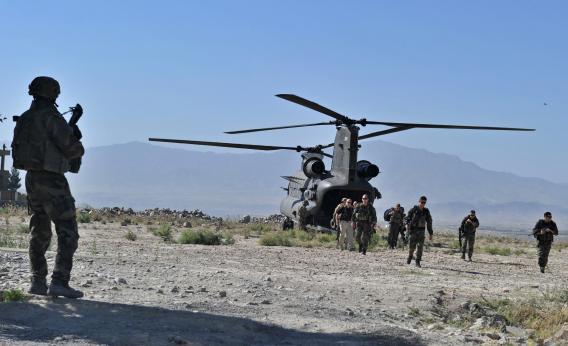For the U.S. military, supporting tech-heavy vehicles and other 21st-century forms of robotic warfare can get tricky in the field. That’s why so many of our military drones are controlled by people located thousands of miles from the war zone. But the growth in military tech—specifically, that which relies on networks—means in the world abroad and even our home turf, we need more computing power close to operations. How do you power networks in a war zone?
Enter Dell’s new Tactical Mobile Data Centers—tank-like, bandwidth-growing server centers that can be hauled by a helicopter and fired up in a matter of minutes. Designed for mobile government and military operations, the large 10-foot cubes are reportedly sand-, dust-, and weather-proof. The temperature, airflow, and humidity of the large ISU-90 container cube—which is designed to be indistinguishable from other parts of a military base—can be controlled remotely.
Inside, the data center IT Pack (which can run off ground power or generator power) houses a battery backup, fiber or copper data connections, and space for servers—servers made by Dell, of course. The company brags that their brick-house mobile server cubes are energy-efficient and can withstand a broad range of temperatures, making it easier to operate in a place like, say, Afghanistan.
Dell’s not the only game in mobile-server town. As Slashdot notes, AOL has a fridge-sized low-maintenance Micro Data Center, conceived to help the struggling Internet behemoth cut down on cost and increase efficiency—and to make a bid at something they once did well: innovate for the Web. It’s part of a trend in building computing infrastructure that values mobility over power. And while we might immediately view these innovations as rugged accessories to military campaigns, government ops, and disaster relief, they also could have an impact on the way modern business deals with Internet technology. Instead of giant air-conditioned rooms full of racks and monitored by tech-y stewards, a company’s servers could sit out back next to the trash compactor, and move when and if the company itself has to downsize or expand.
Via Gizmodo.
